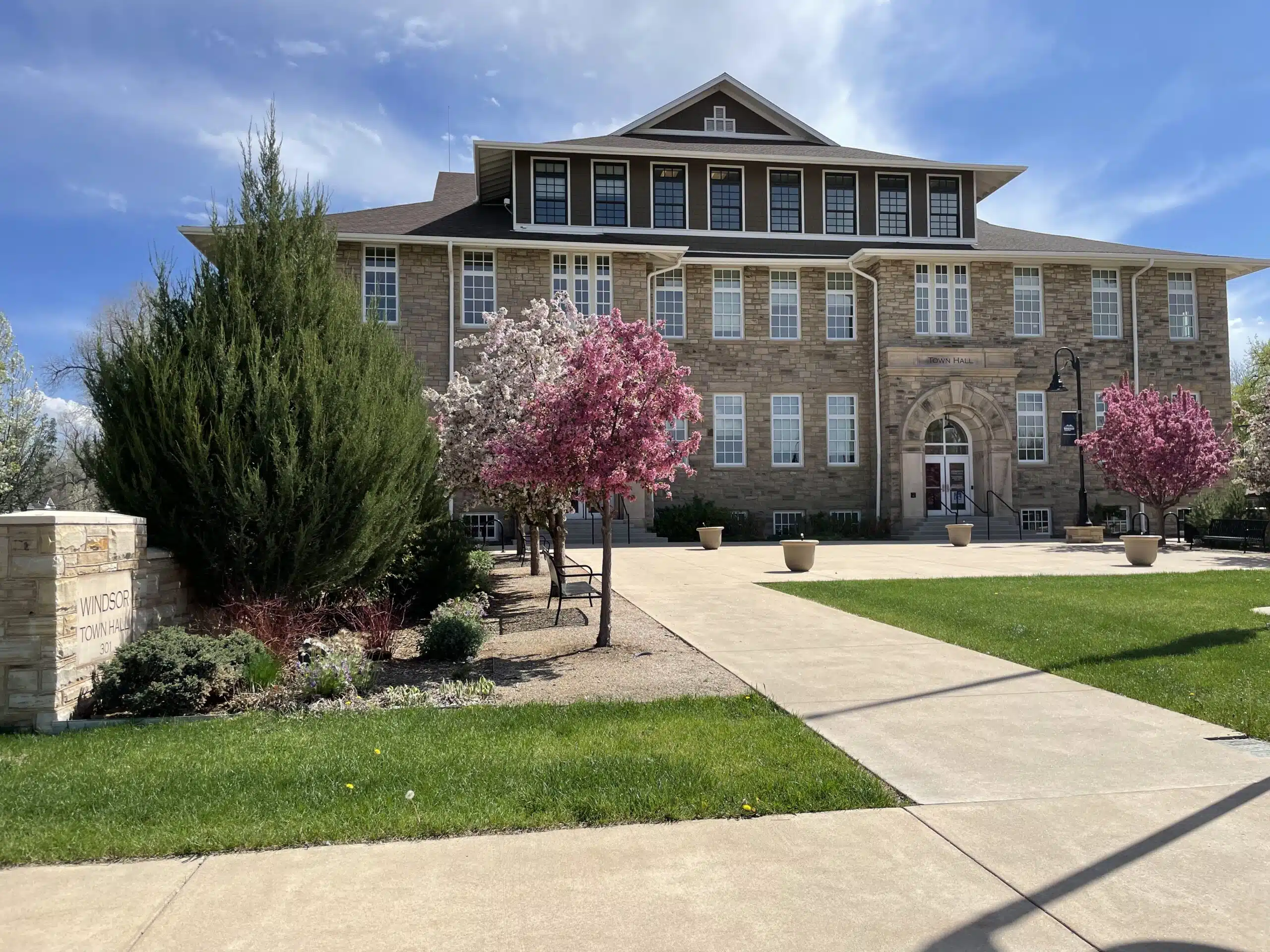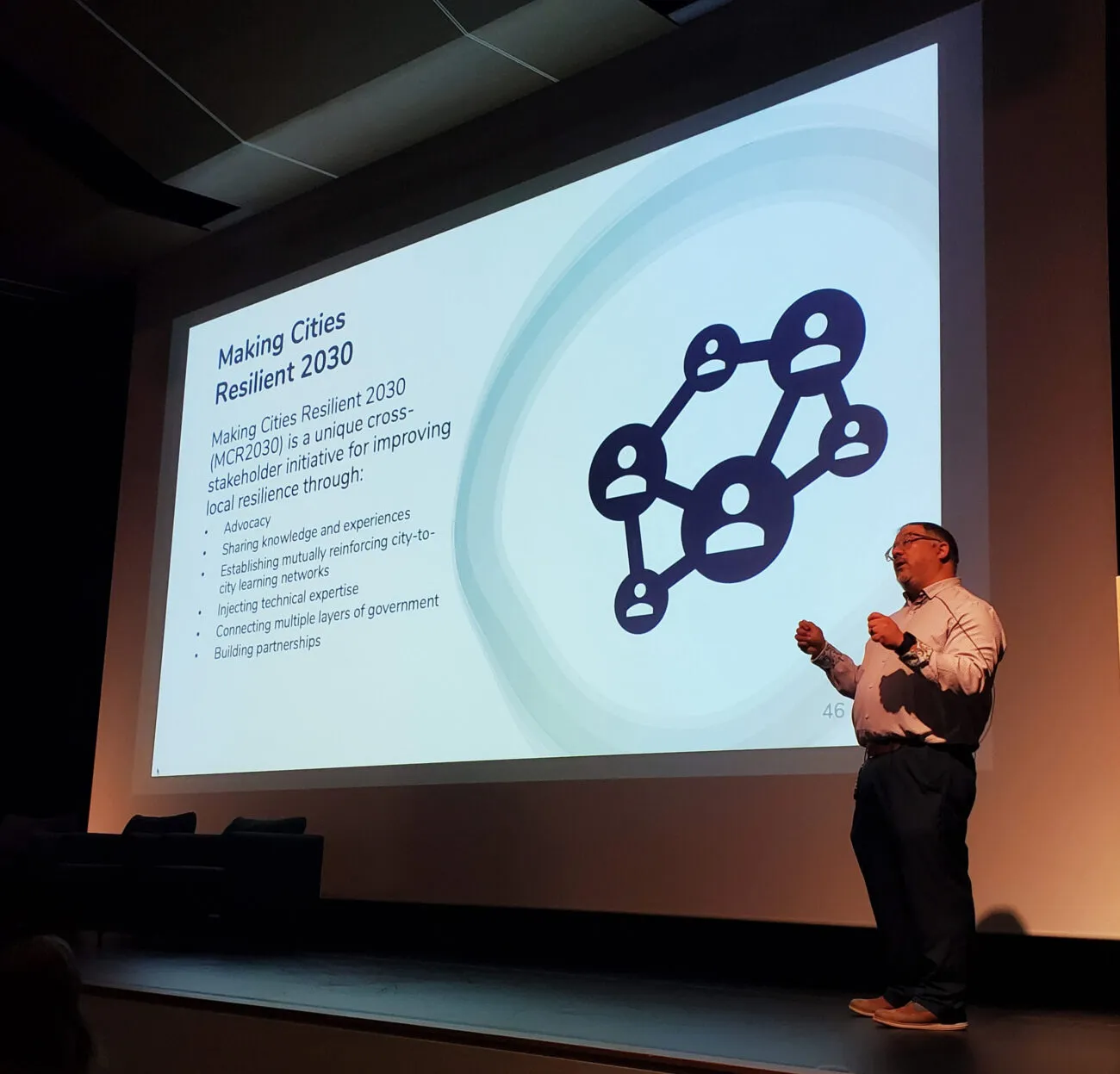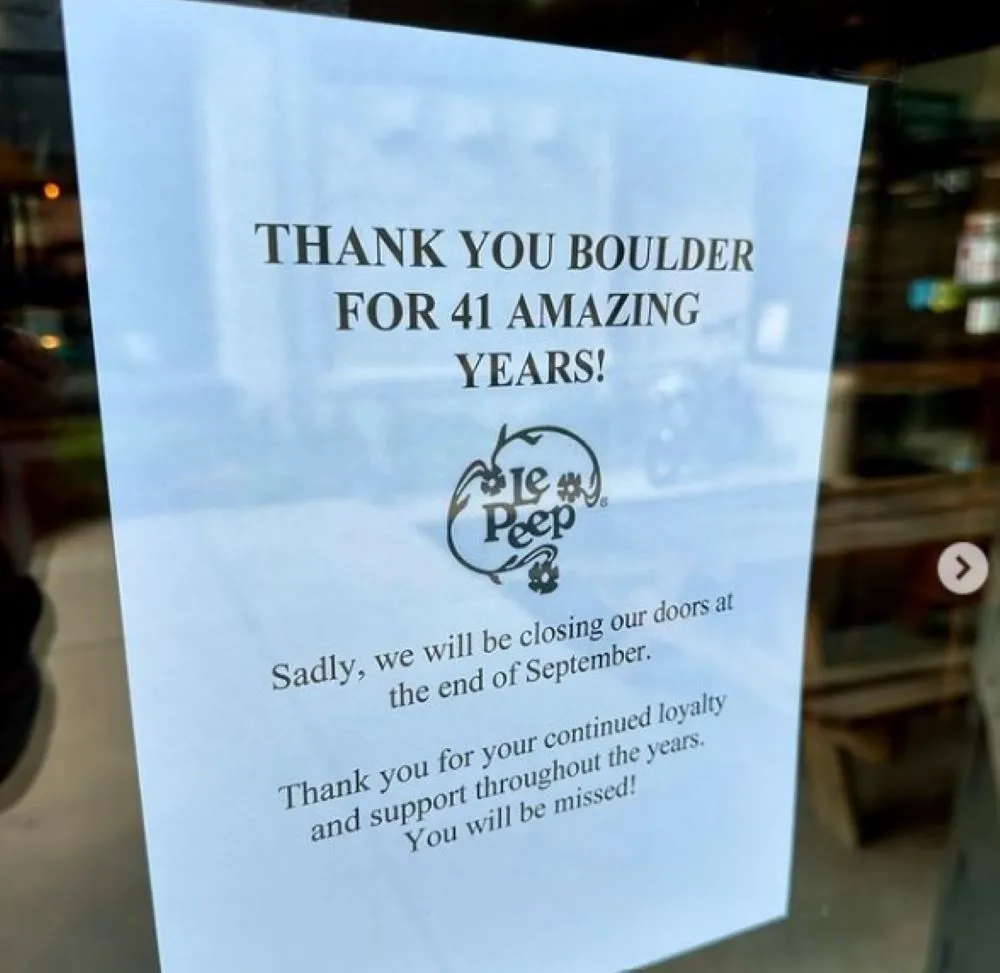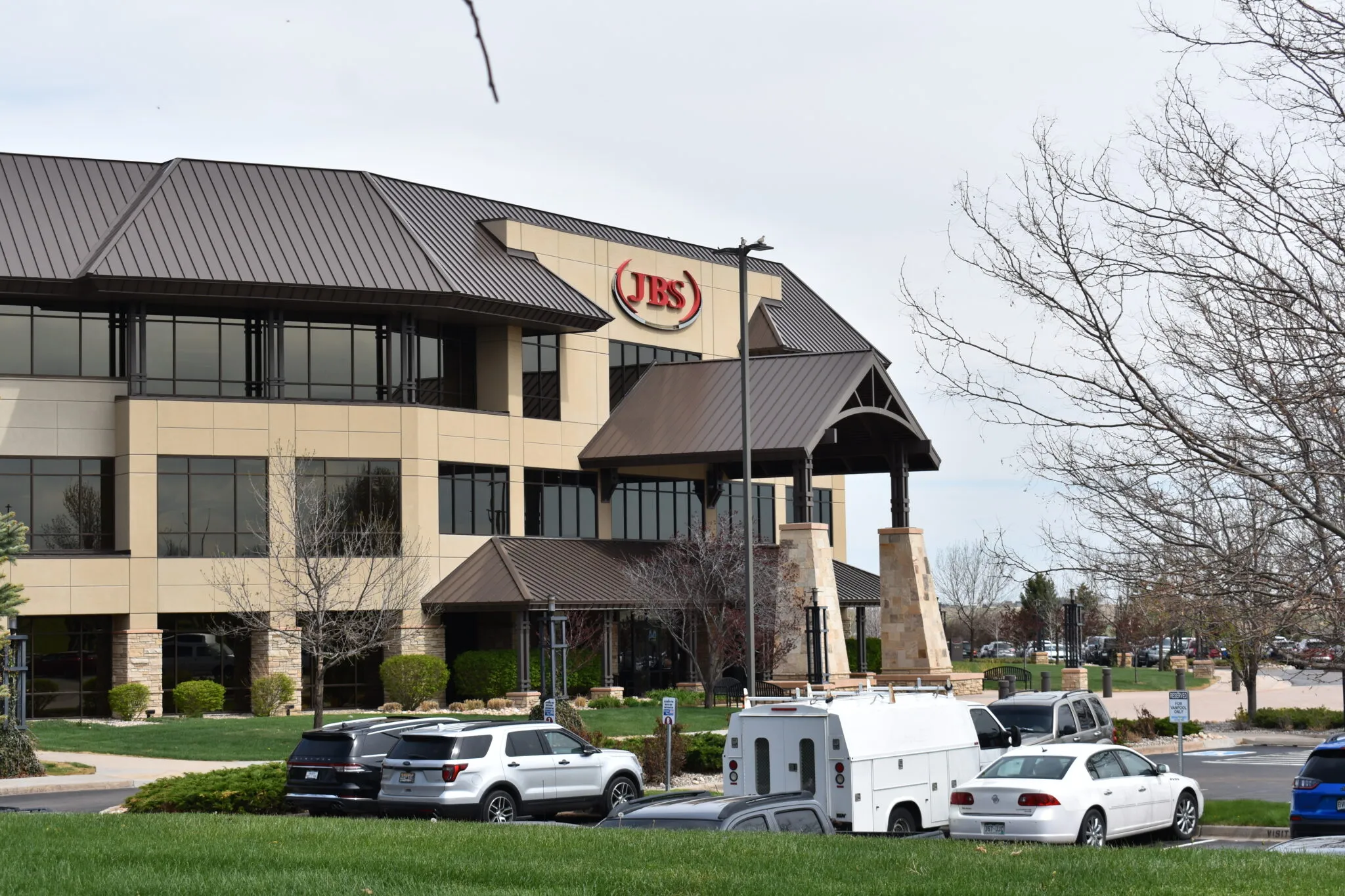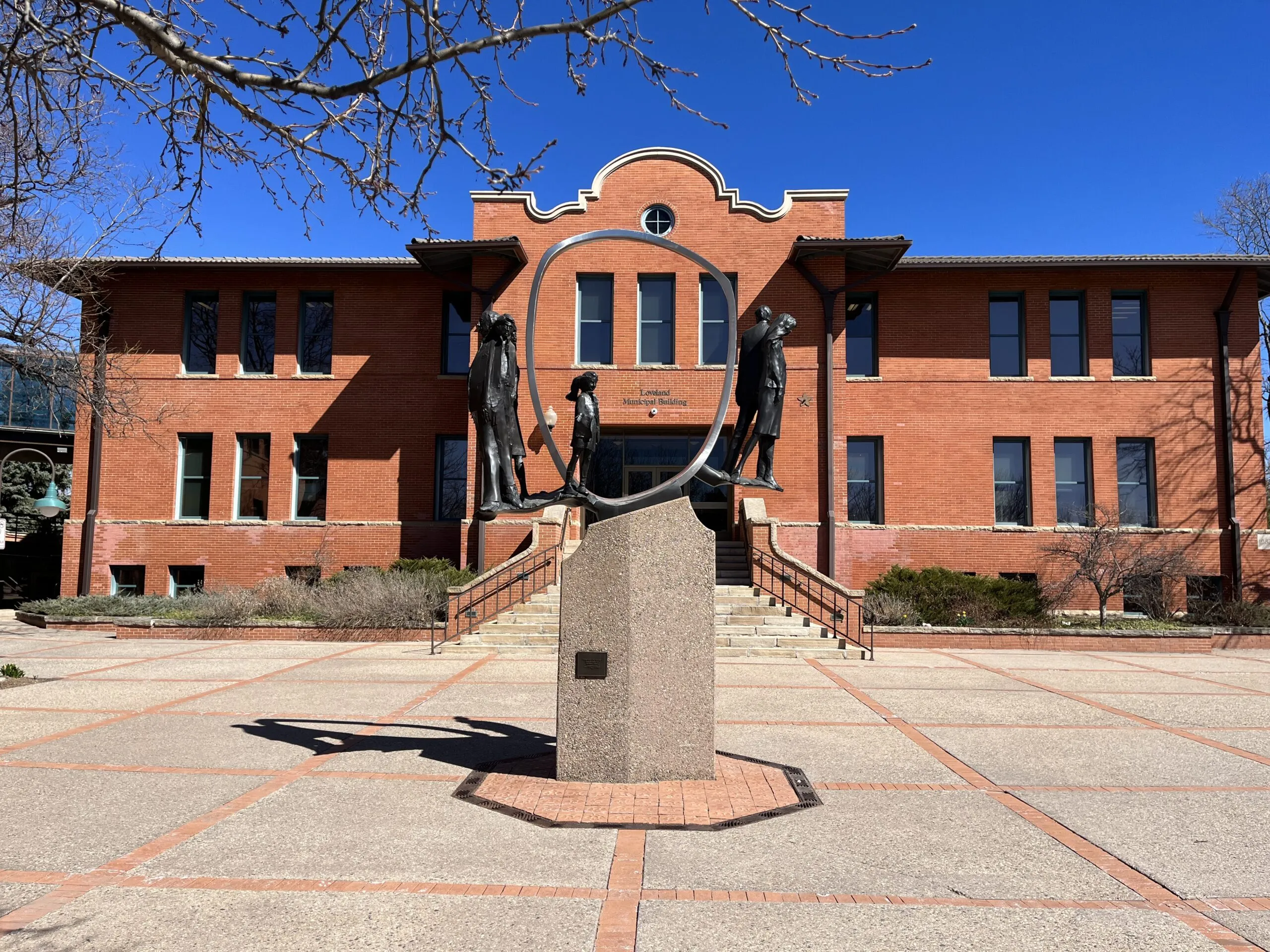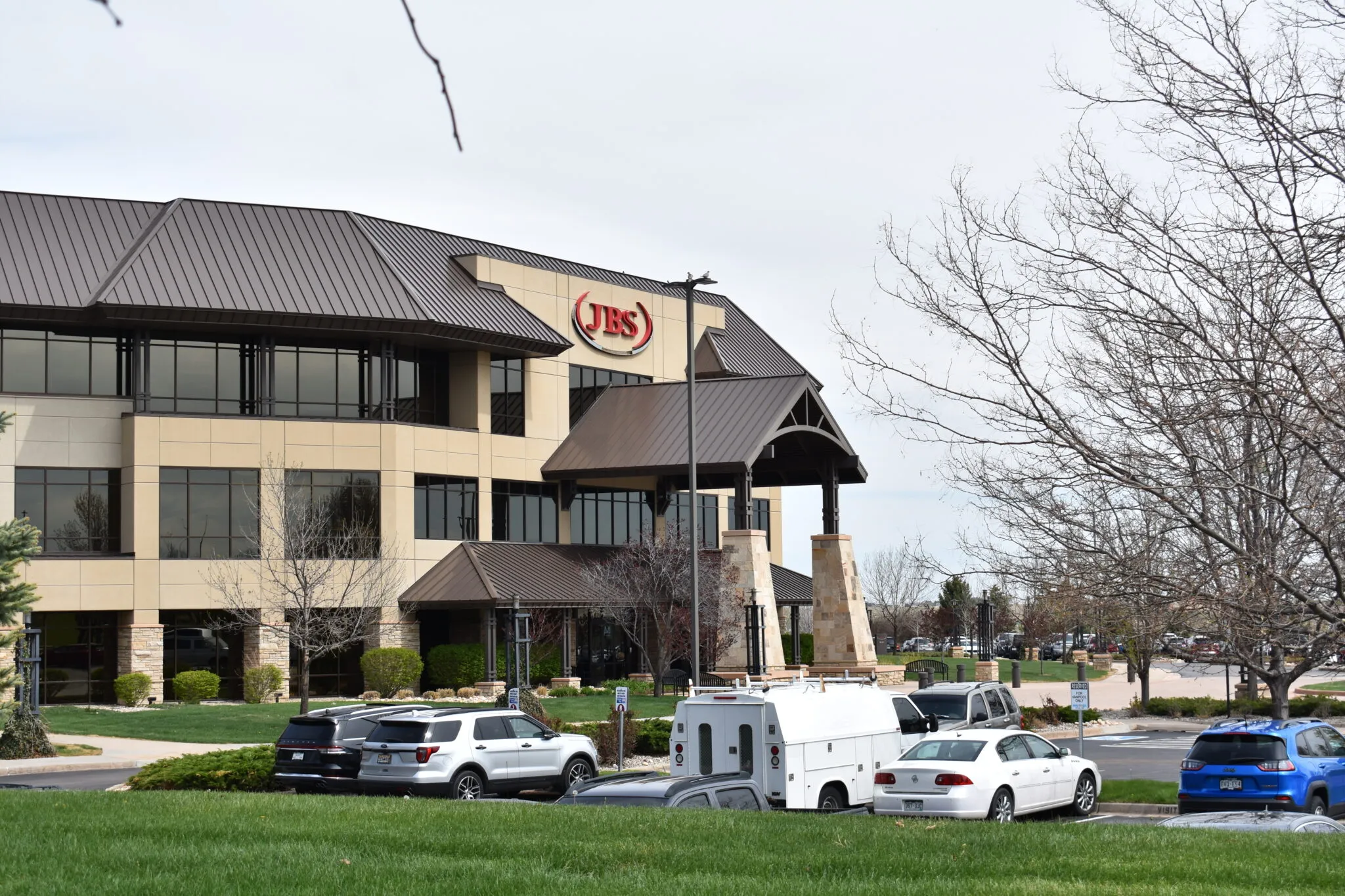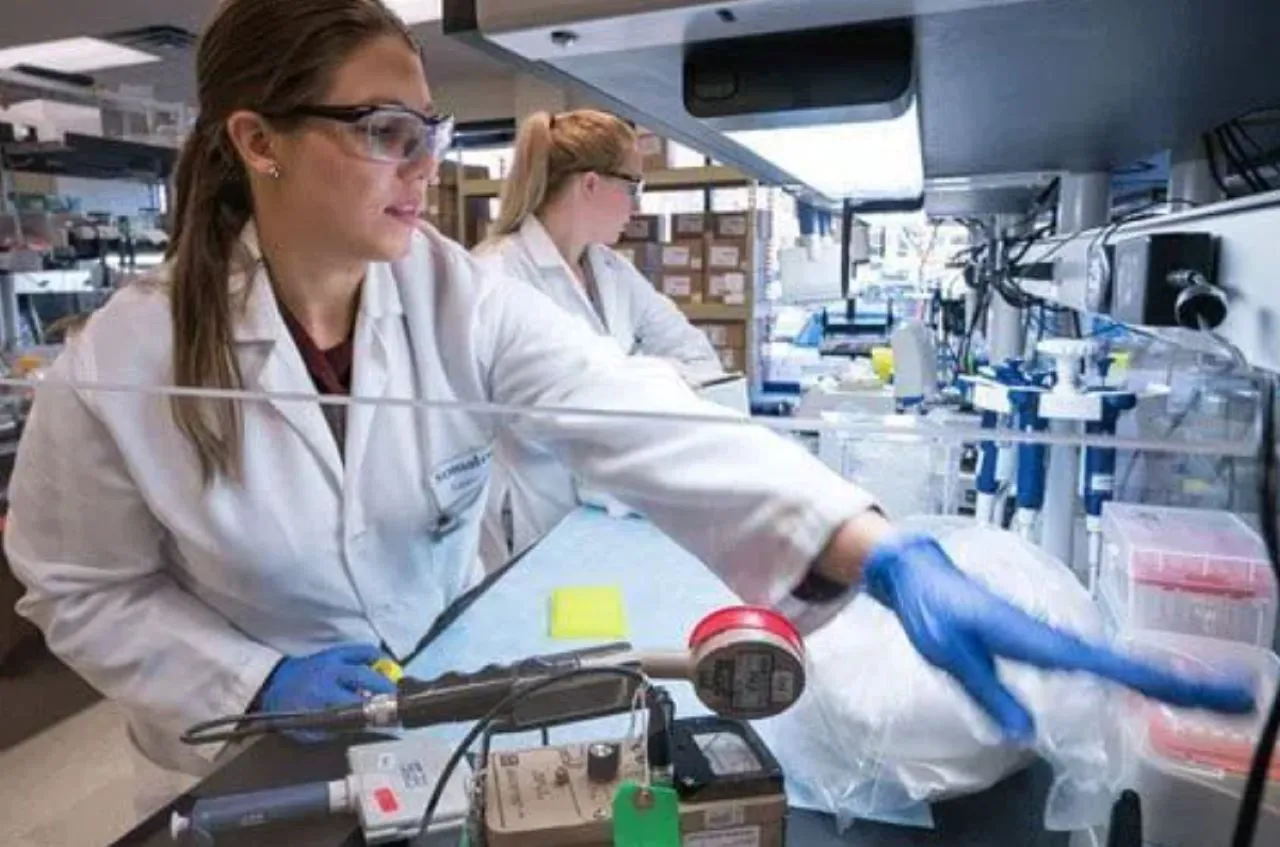For bioscientists facing funding cuts, tariffs: ‘It’s grim out there’
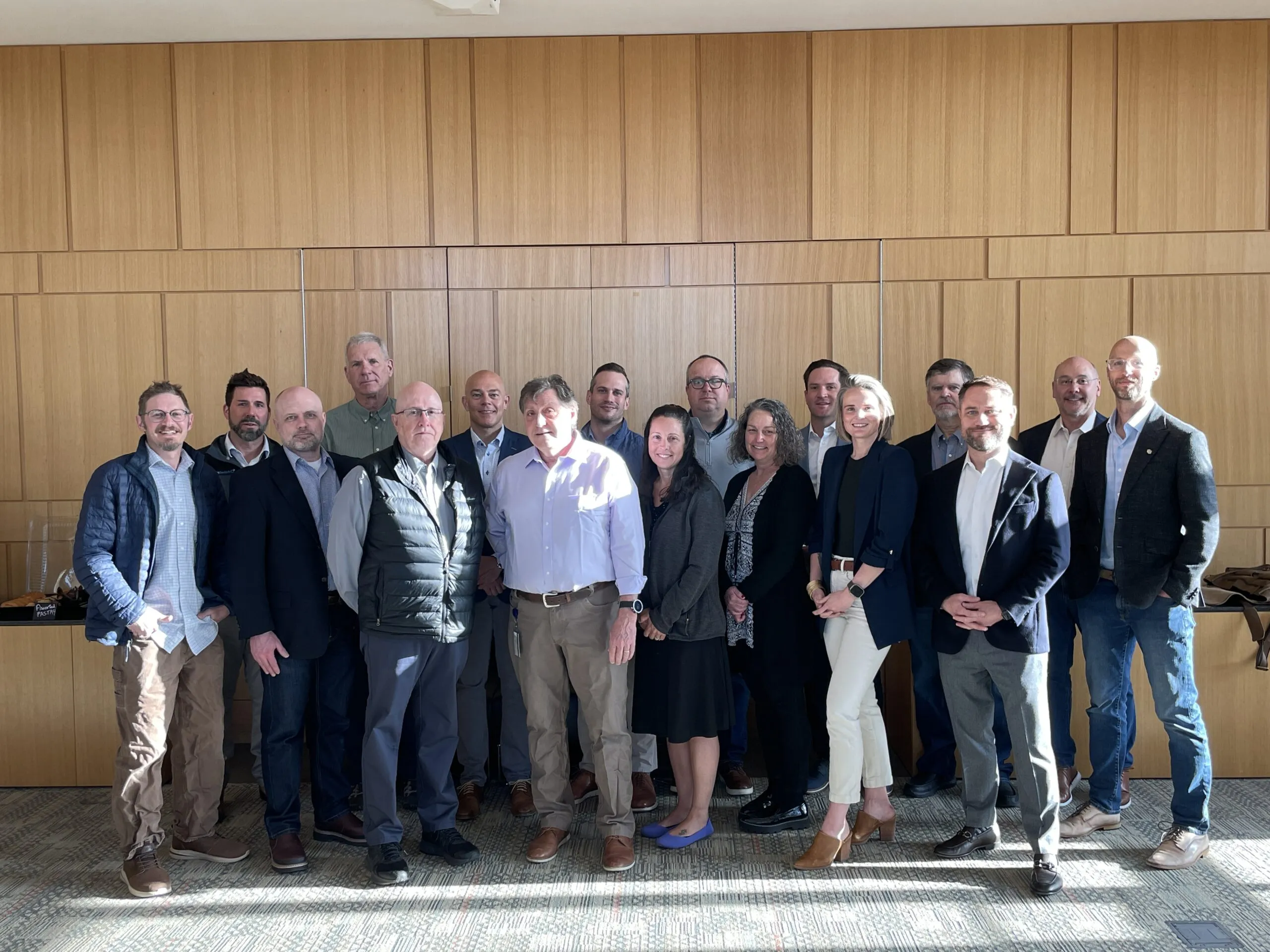
BOULDER — Perhaps no industry is as reliant on grant-funded university research as is bioscience, the companies that develop life-saving pharmaceuticals. With much of that money being abruptly yanked away by the new federal administration, life-sciences executives who gathered this week for a BizWest CEO Roundtable in the University of Colorado Boulder’s Jennie Smoly Caruthers Biotechnology Building said the ripple effects pose many hurdles.
Kyle Lefkoff, founder and general partner at Boulder Ventures Ltd., summed up the group’s general mood on Tuesday: “It’s grim out there.”
“Right now we live in a world that’s chaotic. Everything’s changing daily,” added Scott Hutton, president and CEO of cancer diagnostics company Biodesix Inc. Hutton said the impact on a place such as Boulder has been especially profound.
SPONSORED CONTENT
“This is a small ecosystem and community,” he said. “We need every company here to thrive. I don’t think we’re all set up to thrive.”
“We all tend to rely on each other,” said Sally Dyer, senior vice president and general manager of Colorado operations for Umoja Biopharma Inc., a small, privately funded, 5-year-old clinical-stage company that is based in Seattle but has a manufacturing facility in Louisville. “But how do we navigate this as an ecosystem, managing that uncertainty and not knowing what’s going to happen?
“We do have a resilient community,” she said, “but what we have to be concerned about as an industry is this end-to-end compounding impact. If we don’t have funding at universities to do research, where’s the discovery going to come from? Where does the funding for startup companies come from?
“Unlike the pandemic, where we can discover a vaccine and treat those who want to be treated, I don’t know what the treatment is for what we’re seeing in this space, and this could be prolonged,” Dyer said. “How do we become resilient across the board so that patients don’t suffer, because that would be the worst possible outcome.”
Hutton said his company deals with pulmonologists who are “conducting research also, and their grants are being cut too. And so they aren’t talking to me about treating patients. They’re actually shifting to the fear of having to let people go out of their program so the research gets stopped.
“I worry on a global scale, what’s the impact on patients? It has to be focused on things we can control,” he said. “There’s so much right now that’s outside of our control.
“Uncertainty is not a great thing for a team, with even spouses being impacted,” Hutton said. “I can’t control everything else that’s going on in their lives, but we can provide a little bit of certainty. Hopefully it calms them.
“This too shall pass, We will work through this. But on an individual basis, it’s pretty trying for people.”
Calming jitters is also top of mind for Timothy Joy, co-founder, chairman and chief operations officer at Neva Analytics LLC.
“We’re trying to make sure we’re still available for smaller-scale clients,” he said, “and help them figure out how to stay calm and carry on.”
Doug Chapnick, CEO of BioLoomics Inc., reached for silver linings as well.
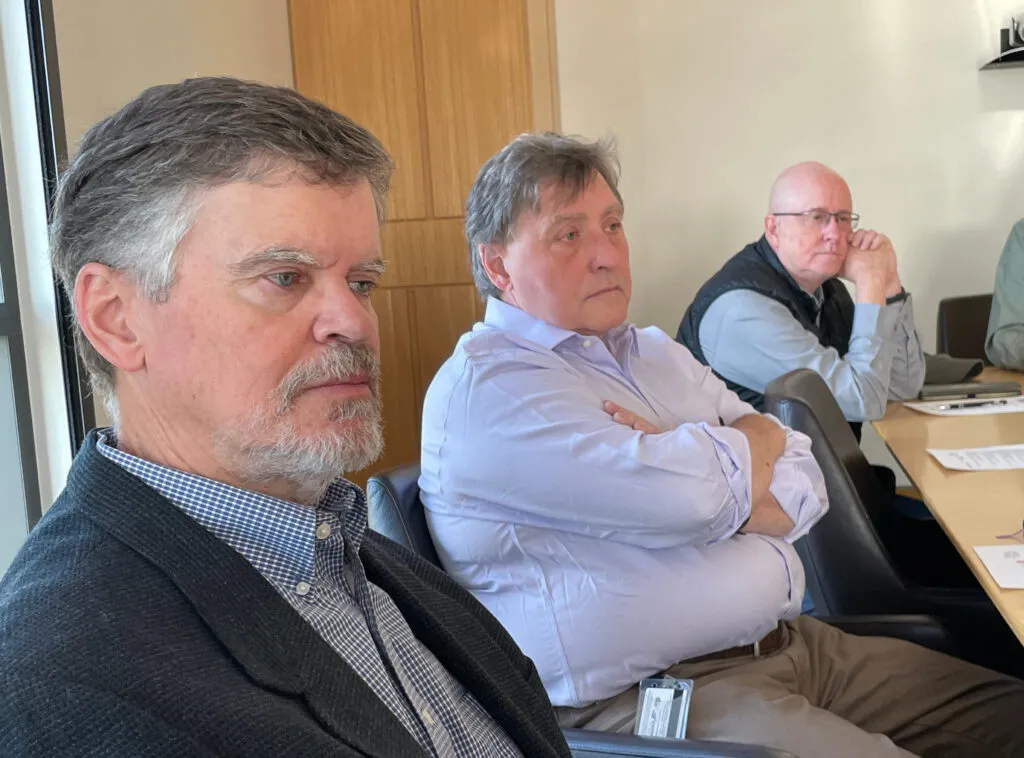
“Funding is definitely top of mind for me,” he said, “but this is the time to form companies, because they’re primed for when the market returns. And this is exactly the time when the universities should be pumping out early-stage stuff.”
Amy Beckley, CEO of hormonal diagnostics company MFG Fertility Inc., which does business as Proov, said her 9-year-old company has yet to be affected by either cuts in grant funding or tariffs, but added that “I feel like it’s coming.
“We have to get funding or we have to cut costs so we’re not burning money,” she said. “If raw materials are more expensive, we have to cut costs other places,” which could include integrating artificial intelligence because “the biggest cost center at our company right now is people.
“We have to think about business differently,” she said. “The companies that are resistant to change are going to be left behind. I don’t want to be left behind.”
Dyer said Umoja hasn’t been directly affected by tariffs because “we’re privately funded. We do manufacturing in the U.S. Most of our materials are sourced domestically.”
However, she added, ‘we are starting to see the costs coming back into that supply chain, though, That’s probably the place where we’re most vulnerable. If our supply of raw materials is impacted by tariffs, that will have a cascading impact for our operation.”
Dyer agreed with Hutton and Joy that, “just from the human side of things, the uncertainty impacts our workforce.”
Douglas Dellinger, CEO of Cerina Inc., said “99% of all biomanufacturing is in China. The problem you have when that happens, with these tariffs, it keeps me up at night. All of a sudden, do my raw materials go up 20 times overnight?”
He said he could order from Germany instead, but “that could be policed as well.”
Dellinger’s biggest concern, he said, “is our customers, especially academic customers. We don’t know what our customer base is going to look like because a significant portion of our customers are academic customers who have no idea whether, even if they had existing grants, they’re going to get funded or not.
“One of the biggest problems we hear is, ‘We have a grant, but they won’t send us the money, so we don’t know whether we can buy stuff.”
Dellinger also asked who will fund research and development. “When R&D comes out of a university,” he said, “it’s oftentimes not yet to a stage where it can be commercialized.”
Dellinger’s company provides high-purity synthesized RNA, or ribonucleic acid, a crucial molecule in all living organisms that plays a key role in the transfer of genetic information transfer and protein synthesis. Cerina’s website brags that “our laboratories sit within the heart of the ‘RNA world’ at the University of Colorado BioFrontiers Institute. We see our role as enablers in the field of nucleic acid technologies, to innovate and make what once seemed impossible, possible.”
And yet John Rinn, CEO of LincSwitch Therapeutics Inc., noted that Boulder has lost its leading role in RNA research.
“How do we make Boulder the RNA capital again? Let’s make it happen again for a younger generation,” Rinn said.
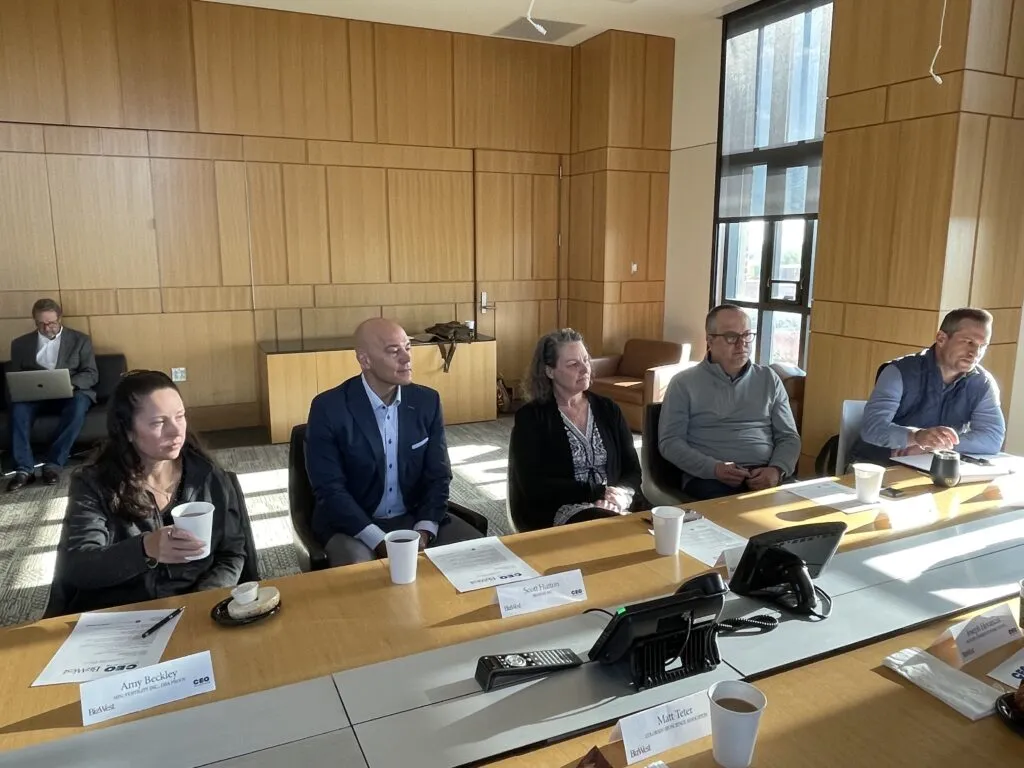
Roy Parker, director of the BioFrontiers Institute, said another concern is the Trump White House’s cuts and changes in focus for federal agencies such as the Food and Drug Administration.
“What kind of predictability will there be at the FDA? Many companies are dependent on the FDA for final critical applications to license your drugs,” Parker said. “If the FDA becomes unpredictable and unreliable, then that can throw a real monkey wrench into the works. It’s not clear to me that this administration wants to make anything work.
“The FDA is a very predictable place for approval of your compounds, your drugs,” he said. “If that changes, unpredictability is really hard for companies to navigate.”
Thirty-five startup companies were spun off from CU Boulder research, the second most of any university in the nation, and “100% of them are based on federally funded research,” said Brynmor Rees, associate vice chancellor for research and innovation and director of the university’s technology transfer office, Venture Partners at CU Boulder.
“In the biosciences, there’s a general appreciation that, along that value chain, a lot of fundamental research happens at universities,” Rees said. “I don’t think that that’s well recognized in the general public. I don’t think that’s well recognized by our elected officials.”
The impact he’ll feel most will be company formation, Rees said.
“Maybe they’re looking at a new target, a new type of therapeutic. Those are going to be the folks that are most impacted by cuts. It’s the company that doesn’t exist yet that may never exist.”
Jeff Dekker, chief financial officer for Genvara Biopharma Inc., said he hasn’t heard much about uncertainty, “but we’re early-stage, so we haven’t talked to a lot of people. We’ve heard there’s still money out there.”
Genvara acquired the rights, title and interest of Westminster-based Arca biopharma Inc. last August. “We’ve actually hired a couple companies to help us with that,” Dekker said. “They seem positive, but that’s their job to seem positive.
“We’ve got a later-stage asset,” he said. “It’s not as expensive as a typical Phase 3. Under $100 million is what we need, so we’re hoping to get a partnership and some venture money.”
Both Matt Teter, vice president for partnerships at the Colorado Bioscience Association, and Boulder Chamber Economic Council executive director Joseph Hovancak, who also is vice president for economic vitality at the Boulder Chamber, said they have launched national campaigns to get out the word about the life-sciences ecosystem in Boulder.
“We’re very focused on companies looking to reduce costs while maintaining an outstanding talent pool and infrastructure in life sciences,” he said, “and how this uncertain climate may help us get some of those companies to relocate to Colorado.”
Hovancak held a seminar last week about the funding cuts and tariffs, as well as tackling the question, ‘“How do we more proactively promote Boulder as an epicenter of bioscience? .
“We’re a little bit of a best-kept secret,” he said.
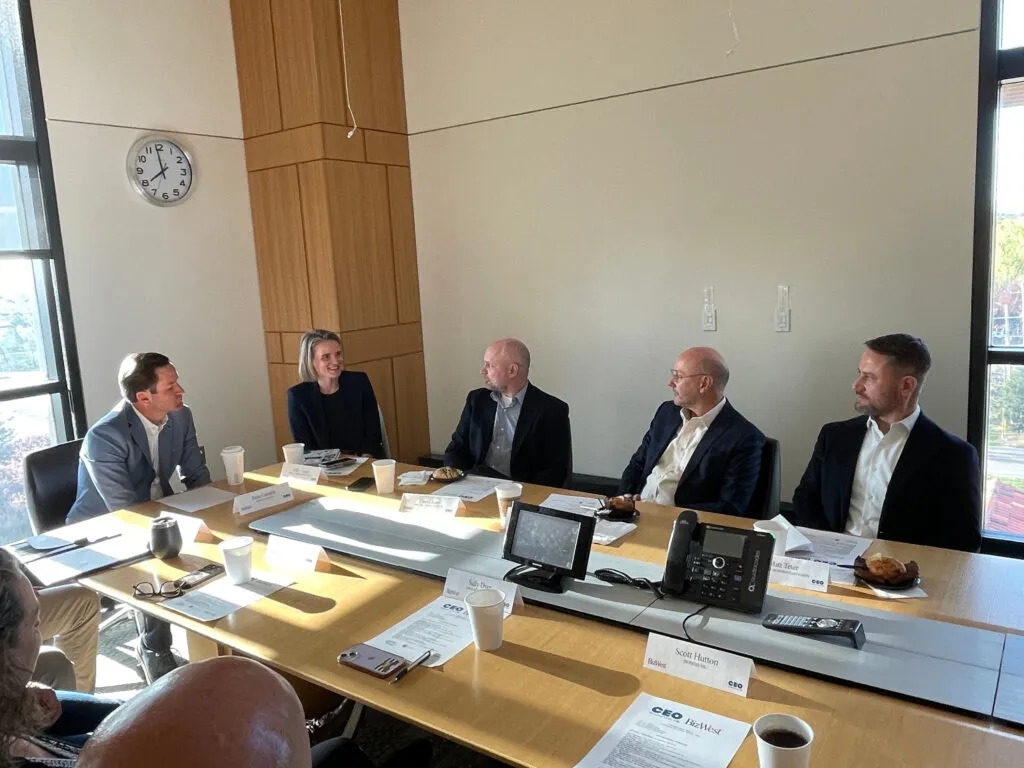
The message he wants to send from his national outreach, he said, is that “Boulder is open for business, and we’re going to focus on filling vacancies.”
Uncertainty clouds that message, however, and Beau Gamble, president of the 65-year-old Dean Callan & Co., said it even trickles down to the real estate market, including landlords and tenants involved in the life-sciences industry.
In the first quarter of 2025, Gamble said, “we had a number of companies excited and gung ho, ready to sign leases and open up offices in Boulder. But that has come to a little bit of a halt here on two different deals I was working on because of the uncertainty of our current political climate and what folks can commit to.
“At one point, we all said there’s too many companies and so much demand for lab-ready space,” Gamble said. “Today, there are a number of options for companies that come out of CU and be move-in ready. But what we’re finding that’s challenging is what it costs to convert existing office buildings. The cost of that is too expensive for startups who rely on grants, rely on venture capital. Not all their money can go toward real estate; it needs to go toward their science and their talent.
“So while we do have space available, there are not a lot of deals getting done.”
Even though he’s hearing a lot of concern, Hovancak said he’s “also hearing that people are still looking at Boulder.
“People are cautiously optimistic because we still have a solid foundation,” he said. “What they’re trying to figure out is how they can pivot and make sure, if these tariffs hit, what do they do differently.”
Last year saw “one of the best fundraising years in Colorado. $2.15 billion,” Teter said, adding that more than half of it was through the National Institutes of Health and the National Science Foundation, both of which have been targeted for cuts by the White House and the “Department of Government Efficiency.”
“I applaud our attorney general, Phil Weiser, who joined 22 other AGs in ensuring these dollars continue to flow, at least for this year,” Teter said. “This is probably even a bigger concern for next year, because I feel there’s going to be some success in courts this year to get those funds released that have already been granted. Next year is a bigger concern once those funds are not granted to begin with and appropriations are cut in Congress.
“We’re fighting hard at the federal level,” he said. “However, because of the uncertainties with the federal grants, the markets and tariffs, many companies are focused on reducing costs and finding the most efficient ways to continue to do business. In that sense, the path may lead to Colorado for some companies.”
Teter said he will be part of a Metro Denver Economic Development Corp. business-recruitment trip to Massachusetts to make the pitch for Colorado. However, noted Lefkoff, “I don’t think we compete with Boston or San Francisco.
“Those are two centers of excellence in biotechnology,” he said. “But if you’re an ambitious founder from a great academic lab, and you want to start a biotech company, and you’re raising capital to do that, if what you care about is money and status, you’re not coming to Boulder, Colorado.
“People come to Boulder for reasons unrelated to their desire for money and status,” he said. “We attract and retain a very special group of individuals who are entrepreneurs and want to build their businesses here. That’s always been the strength of Boulder and always will be.”
He noted that when giant firms such as Pfizer pulled out of Boulder, “nobody left. Nobody moved to Boston or San Francisco. They all stayed here.
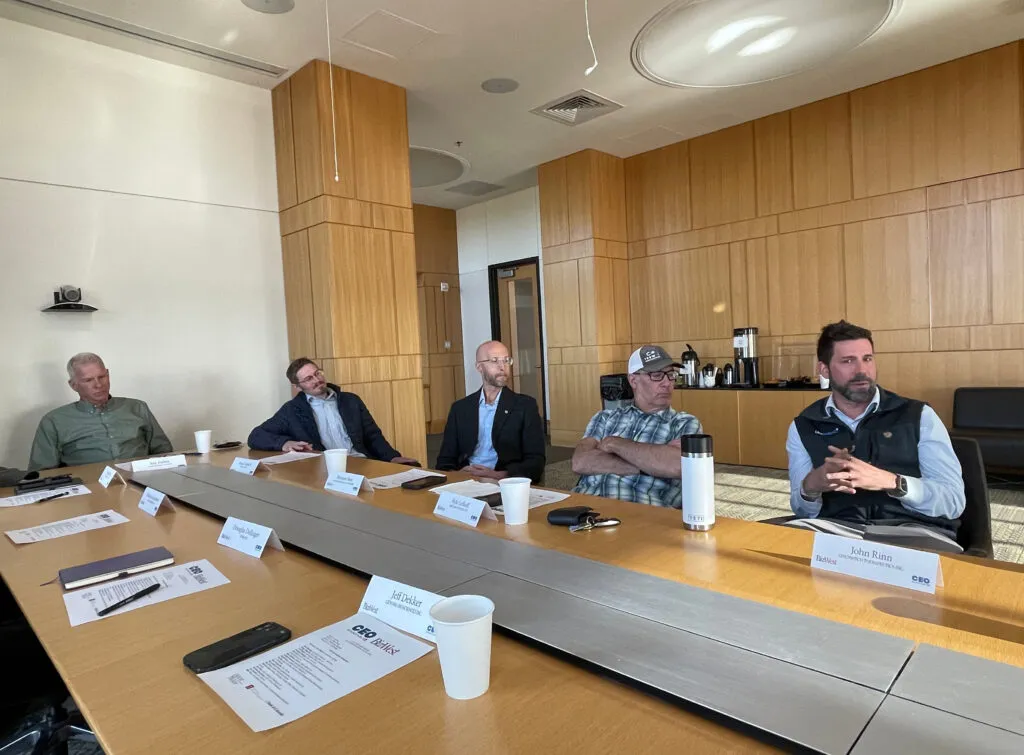
“We don’t compete with anybody,” Lefkoff said. “We are culturally distinct.”
Teter said he believed Colorado’s competition in the life-sciences industry comes more from North Carolina and Texas than from Boston or San Francisco.
“We’re going to have to look at how competitive Colorado is,” he said. “People want to live in Colorado. This is the first state I’ve lived in that I came here before I had a job.
“As funding is reduced, the market becomes more difficult and there will be increasing costs,” Teter said. “It’s going to become even more important that we’re ensuring that Colorado is competitive as a state, offering incentives to not only keep companies here but recruit new companies. We’re going to have to work together in life sciences but also under the big umbrella of advanced industries.
“Properly educating our elected officials on the importance of advanced industries, of life sciences, is a very small investment for the return that you get.”
Lefkoff added that “resilient, excellent companies in Boulder will thrive in this environment of chaos. They will persist and be successful in our community. They will continue to grow and expand.
“The strong will survive,” he said. “That’s always been the case.”
Chapnick said he believed biotechnology companies’ “founders will all come from here,” and Joy seconded that notion.
“We’re seeing an uptick,” he said. “We’re optimistic. We’re Colorado born and bred, and we’re not leaving.”
Also attending the CEO Roundtable were representatives of the event sponsors, including Michael Heyer, a loan officer at Bank of Colorado; Jeremy Wilson, a partner at the Plante Moran accounting firm; and David Kerr, a partner in the intellectual property group, and Ashley Legan, director of marketing, both with the Berg Hill Greenleaf Ruscitti LLP law firm.
Perhaps no industry is as reliant on grant-funded university research as is bioscience, the companies that develop life-saving pharmaceuticals. With much of that money being abruptly yanked away by the new federal administration, life-sciences executives who gathered this week for a BizWest CEO Roundtable in the University of Colorado Boulder’s Jennie Smoly Caruthers Biotechnology Building said the ripple effects pose many hurdles.























